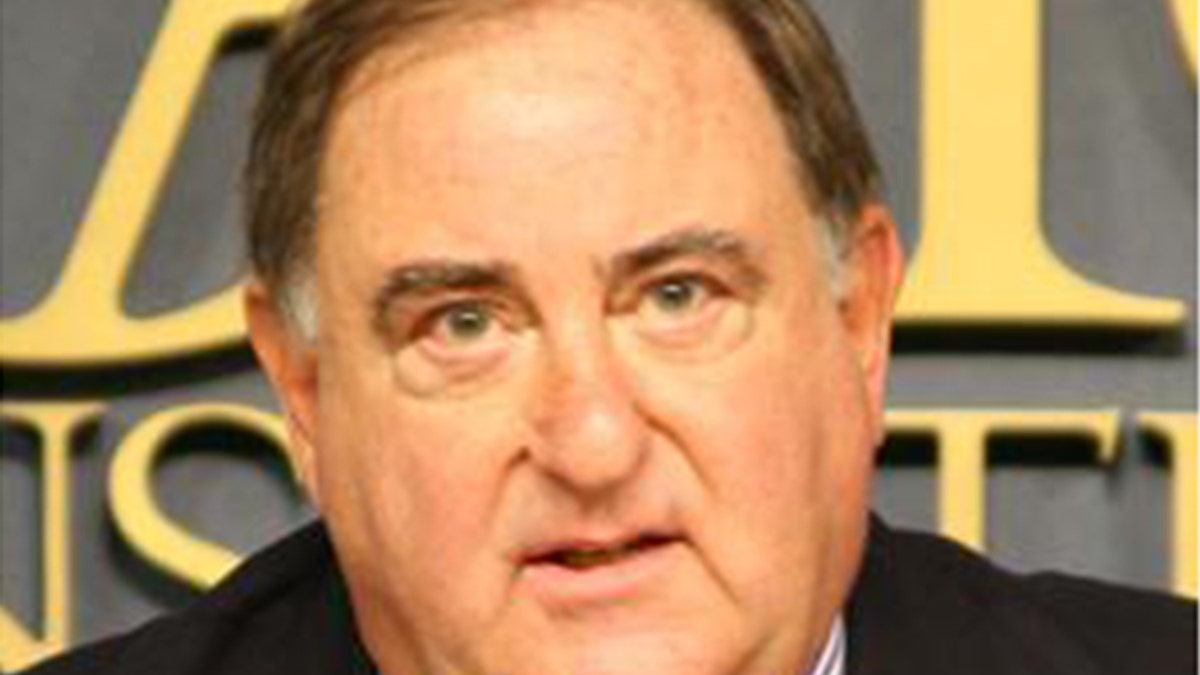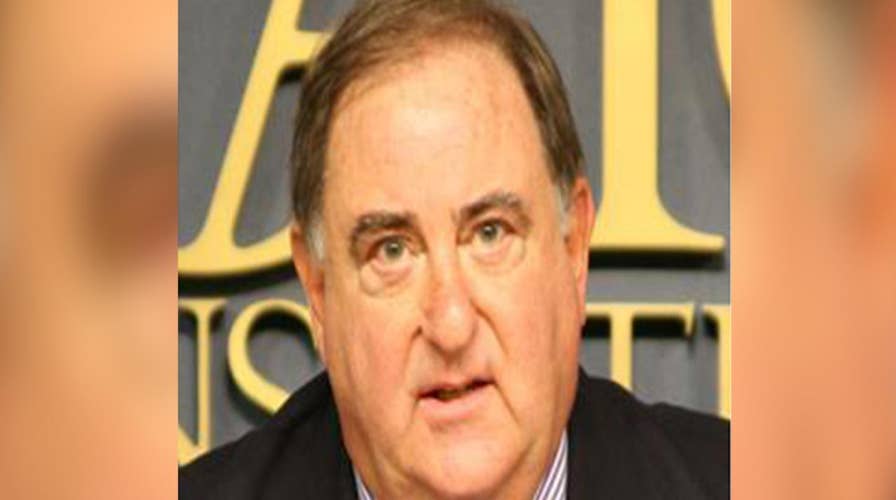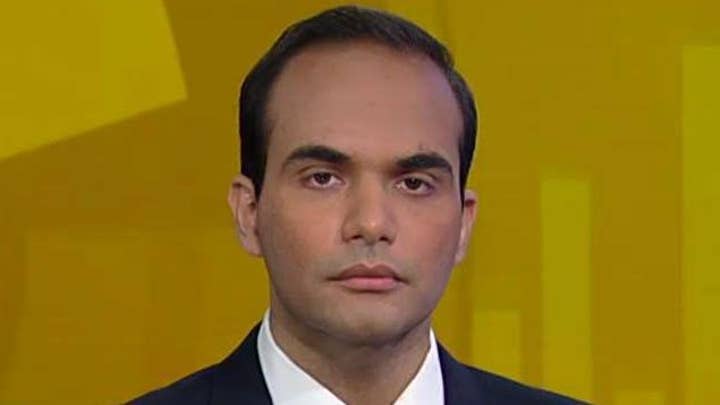How Stefan Halper figures into the origins of the Russia probe
Insight from Lee Smith, a journalist and author of 'The Plot Against the President,' and Sidney Powell, attorney for General Michael Flynn.
The Department of Defense may have used taxpayer funds to pay longtime informant Stefan Halper, a Cambridge University professor, to recruit members of the Trump campaign as sources in the run-up to the 2016 election, Finance Committee Chairman Sen. Chuck Grassley, R-Iowa, said in an explosive letter on Wednesday.
Grassley, writing to James Baker, the director of the Office of Net Assessment (ONA) at the Defense Department, or DOD, also flagged other suspicious payments to Halper -- including some for DOD contracts that he may not have performed, and others from "unknown" foreign entities. (In response to a lawsuit last year alleging that he was part of a smear campaign to discredit the Trump campaign, Halper claimed a kind of immunity ordinarily afforded to government agents.)
The GOP senator asserted that it was "unacceptable" that the DOD spent most of 2019 dodging his requests for information about Halper's contacts with U.S. officials, before saying that the information the DOD has provided raised more troubling questions. The ONA essentially functions as the Pentagon's internal think tank.
In one DOD contract awarded in September 2015, Grassley noted, "Professor Halper lists former Deputy Foreign Minister for Russia, Vyacheslav Trubnikov, as a consultant and advisor to a paper delivered" to ONA.
That's significant, Grassley went on, because Trubnikov is a "known Russian intelligence officer, who was listed by Christopher Steele as a source in the now-debunked Steele dossier, which was used as a predicate to obtain a Foreign Intelligence Surveillance Act (FISA) warrant to surveil Trump campaign adviser Carter Page."
CARTER PAGE FISA WARRANTS LACKED PROBABLE CAUSE, DOJ ADMITS IN BOMBSHELL FILING
Page previously told Fox News that Halper "intensified" communications with him just prior to the FISA warrant application.

Professor Stefan Halper is at the center of a Republican complaint with the DOD over questionable payments. (Voice of America, File)
"I had a longstanding relationship with Professor Halper," Page told host Maria Bartiromo. "I always believe in 'innocent until proven guilty,' but my conversations with him intensified right in the month before my illegitimate FISA warrant in September 2016, when all these defamatory articles are being placed by the [Democratic National Committee]. ... Professor Halper was being very positive, you know, like a Harriet Tubman figure. He understands sort of the injustices, or he presented himself as understanding that ... and I sort of trusted him."
The DOJ acknowledged on Thursday that the Page FISA warrants were legally insufficient and should never have been issued. Much of the Steele dossier has been proved unsubstantiated, including the dossier's claims that the Trump campaign was paying hackers based out of a non-existent Russian consulate in Miami or that ex-Trump lawyer Michael Cohen traveled to Prague to conspire with Russians. Special Counsel Robert Mueller also was unable to substantiate the dossier's claims that Page had received a large payment relating to the sale of a share of Rosneft, a Russian oil giant, or that a lurid blackmail tape involving the president existed.
"It is unclear from the contracting officer file whether Professor Halper paid Trubnikov for his assistance in gathering information for this paper, or in what capacity Professor Halper interacted with Trubnikov during the course of performing work for this contract," Grassley said. "Further, reports indicate that Halper offered [former Trump aide] George Papadopoulos $3,000 for assistance in completing an energy study and met Carter Page at a Cambridge conference. Given Professor Halper’s intelligence connections and government funding, it is reasonable to ask whether he used any taxpayer money in his attempt to recruit Trump campaign officials as sources."
Papadopoulos has told Fox News that his meetings with Halper were "clearly" part of a CIA operation.
Additionally, Halper was apparently paid for some work he did not perform, raising the question of whether he was actually providing some off-the-books services, Grassley noted.
And, the senator wrote, "Halper’s file for a contract, awarded in September 2016, also contains unusual references to unknown third parties paying for portions of his travel and hotel expenses for a trip to Japan where he conducted several interviews with Japanese officials for a government project relating to the relationship between China and India." The unusual payments, Grassley said, raise the "question as to who exactly paid for the travel and hotel expenses and why?"
PAGE TELLS FOX NEWS THAT HALPER 'INTENSIFIED' COMMS JUST PRIOR TO FISA WARRANT
Grassley flagged other potentially problematic ONA projects, including a paper that "focuses largely on Vladimir Putin’s neurological development and potential Asperger’s diagnosis."
"The fact that taxpayer money was used to support these projects calls into question ONA’s ability to be a proper steward of the people’s money and whether ONA has acted consistent with its mission and purpose," Grassley said.
He demanded that DOD explain how much it paid for papers like the Putin deep dive, as well as more information on Halper's contacts with U.S. officials.
"Did Professor Halper ever disclose his relationship with former Deputy Foreign Minister for Russia Vyacheslav Trubnikov to yourself or any other ONA official prior to completion of contract number HQ0034-15-C-0100 (The Russia-China Relationship: The Impact on the United States’ Security)?" Grassley asked. "Does this relationship with a Russian intelligence officer suggest that there may be biased and unreliable information contained within the deliverable?"
He continued: "Can ONA state for certain that Halper did not use taxpayer money provided by DoD to recruit, or attempt to recruit, sources for the FBI investigation into the now-debunked theory of collusion between the Trump campaign and Russia? Are you, or any other ONA official, aware of any other relationships Professor Halper had with foreign intelligence officers?"
Matt Wolking, the Trump campaign's deputy director of communications, called the DOD's actions as described in Grassley's letter "shady as hell."
"Grassley raises questions about whether Stefan Halper's work for DOD at taxpayer expense was 'influenced by foreign individuals or entities,'" Wolking wrote. "Seems like a good question given Halper's collaboration with a known Russian intelligence officer."
Wolking added: "Did Halper use taxpayer money to target the Trump campaign?"






